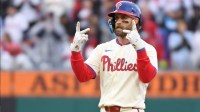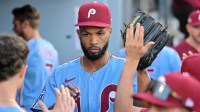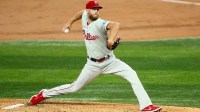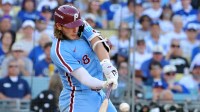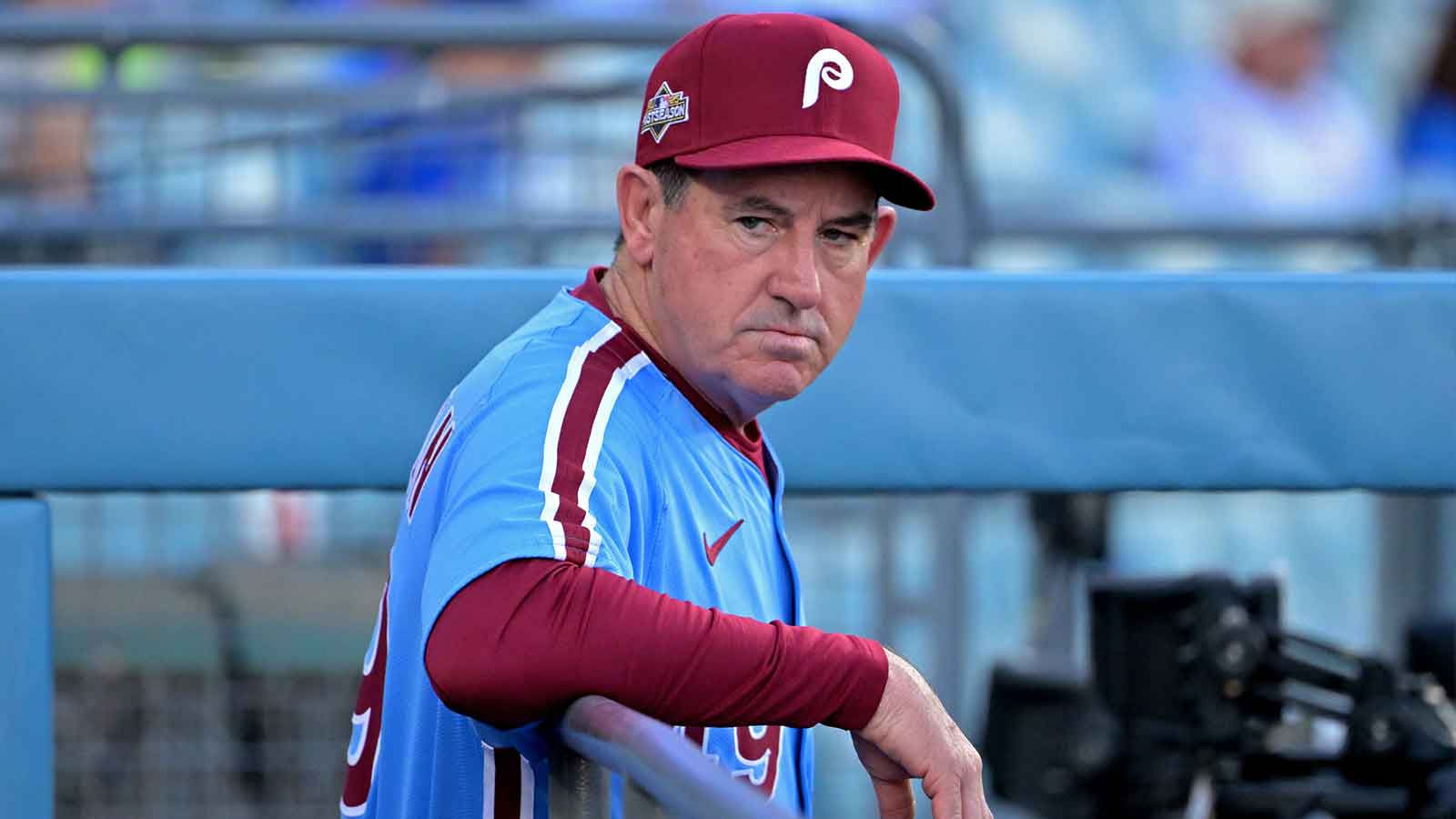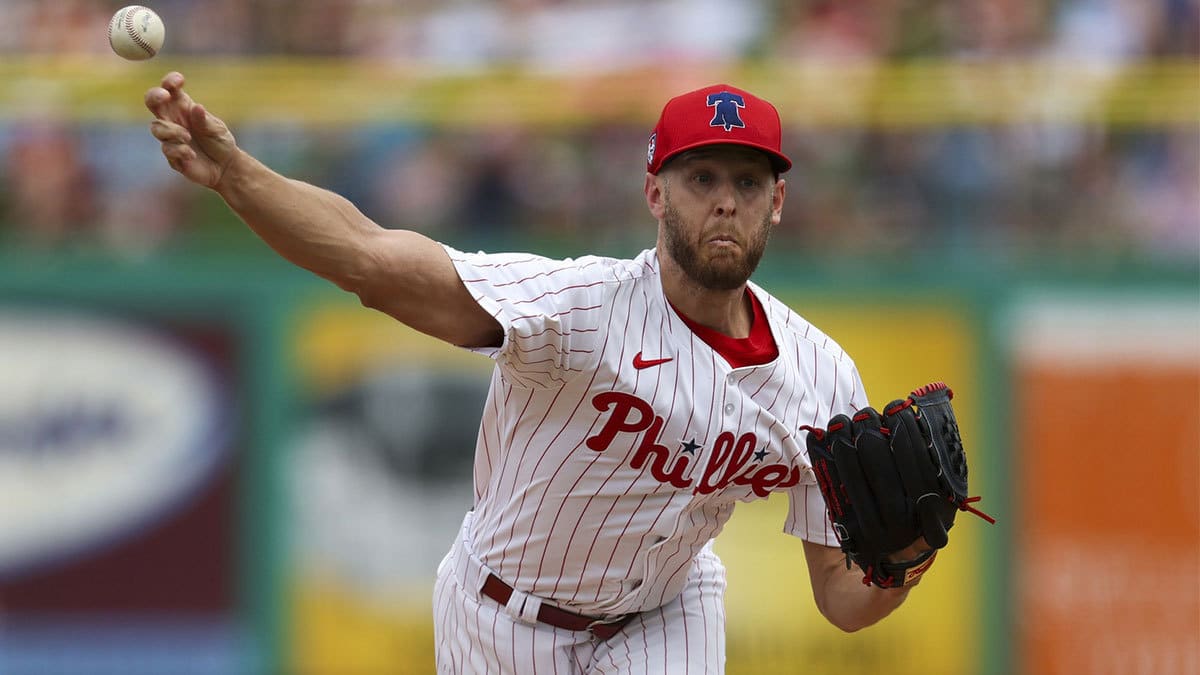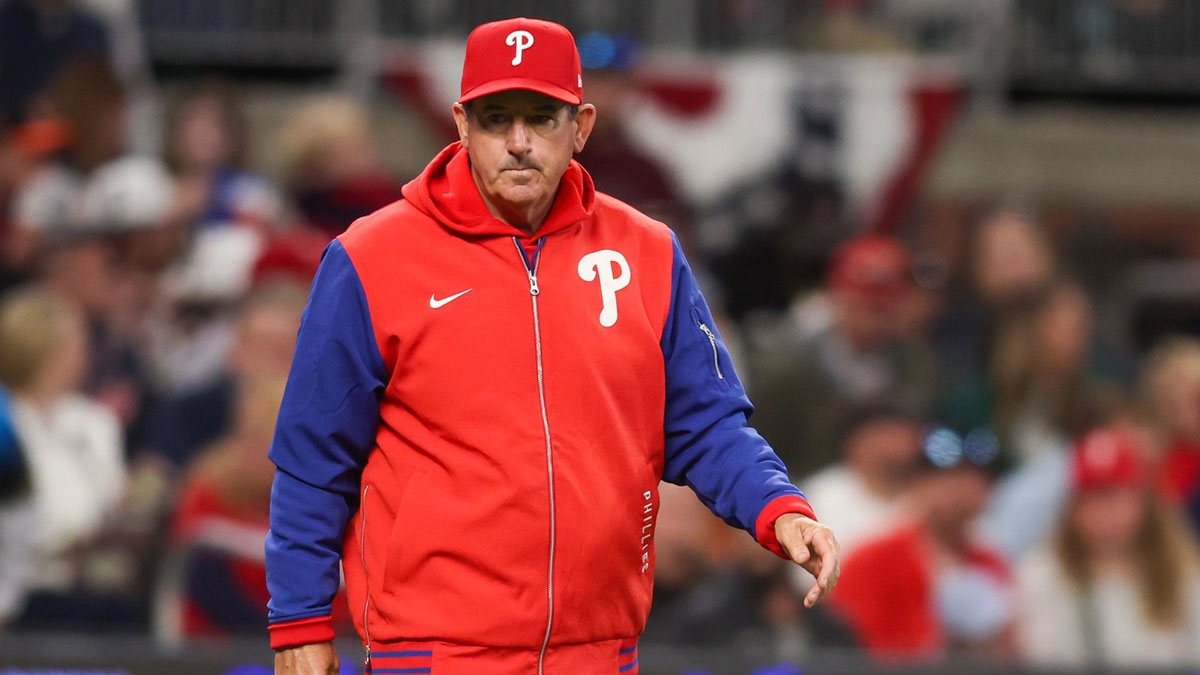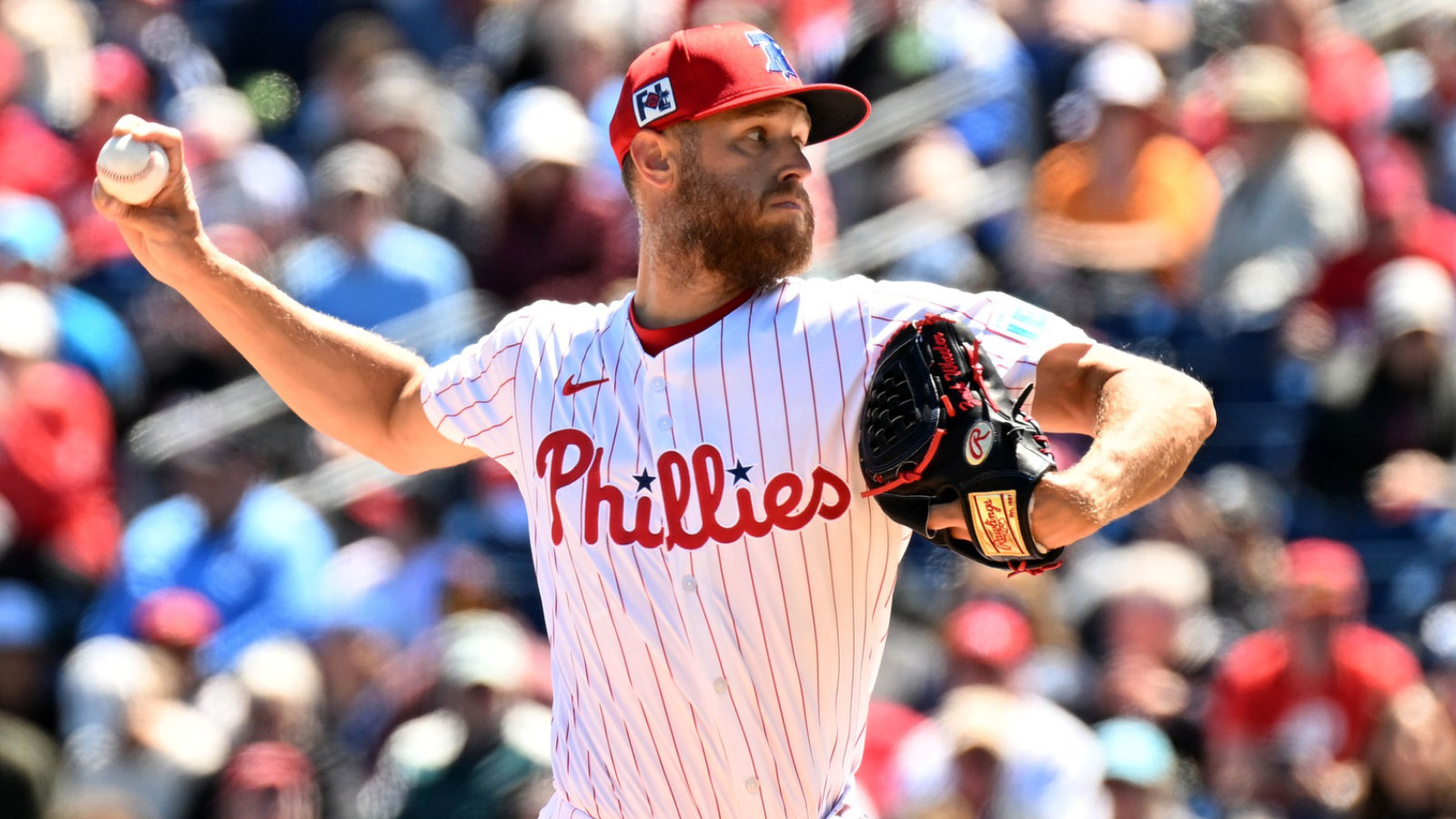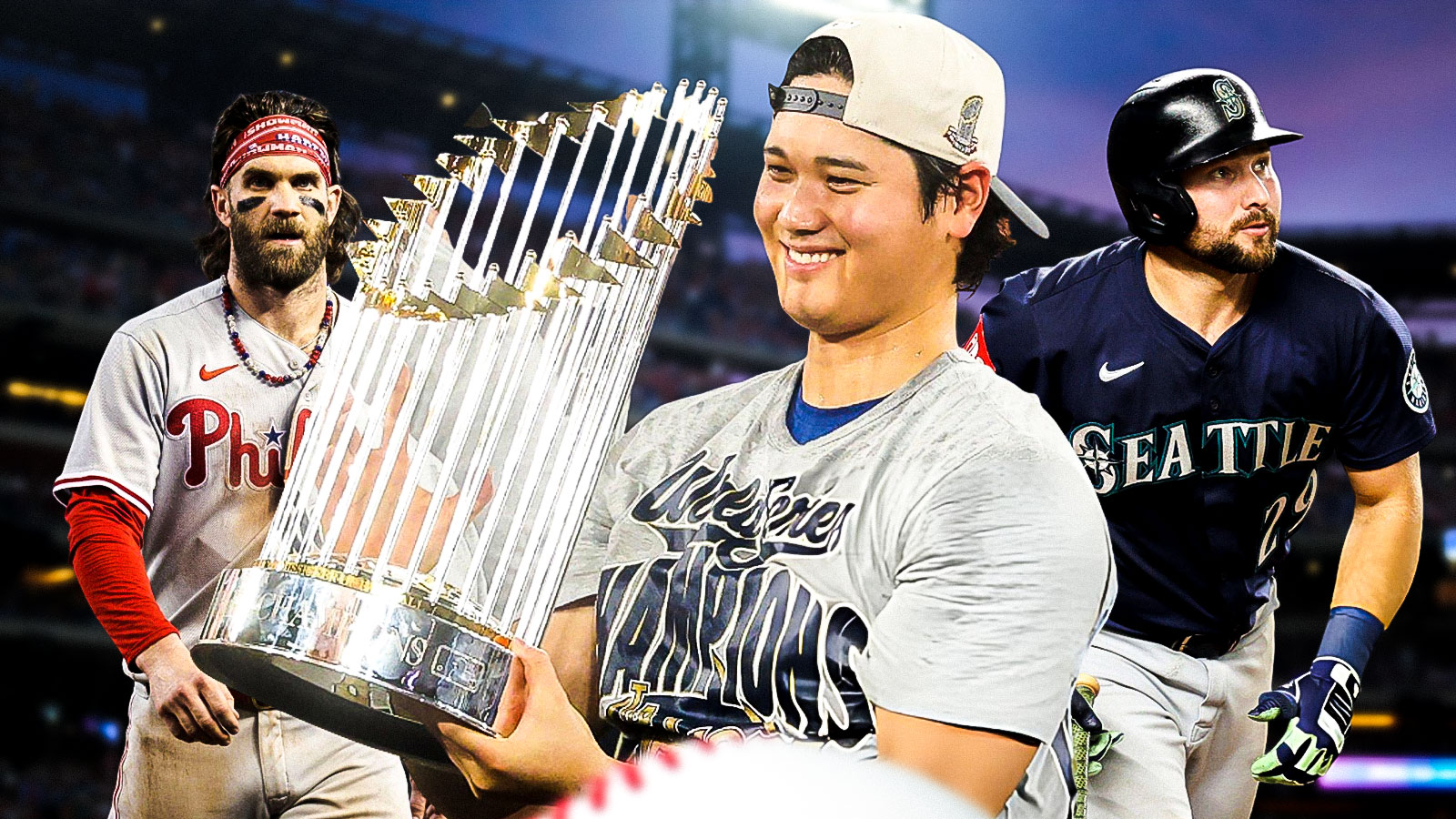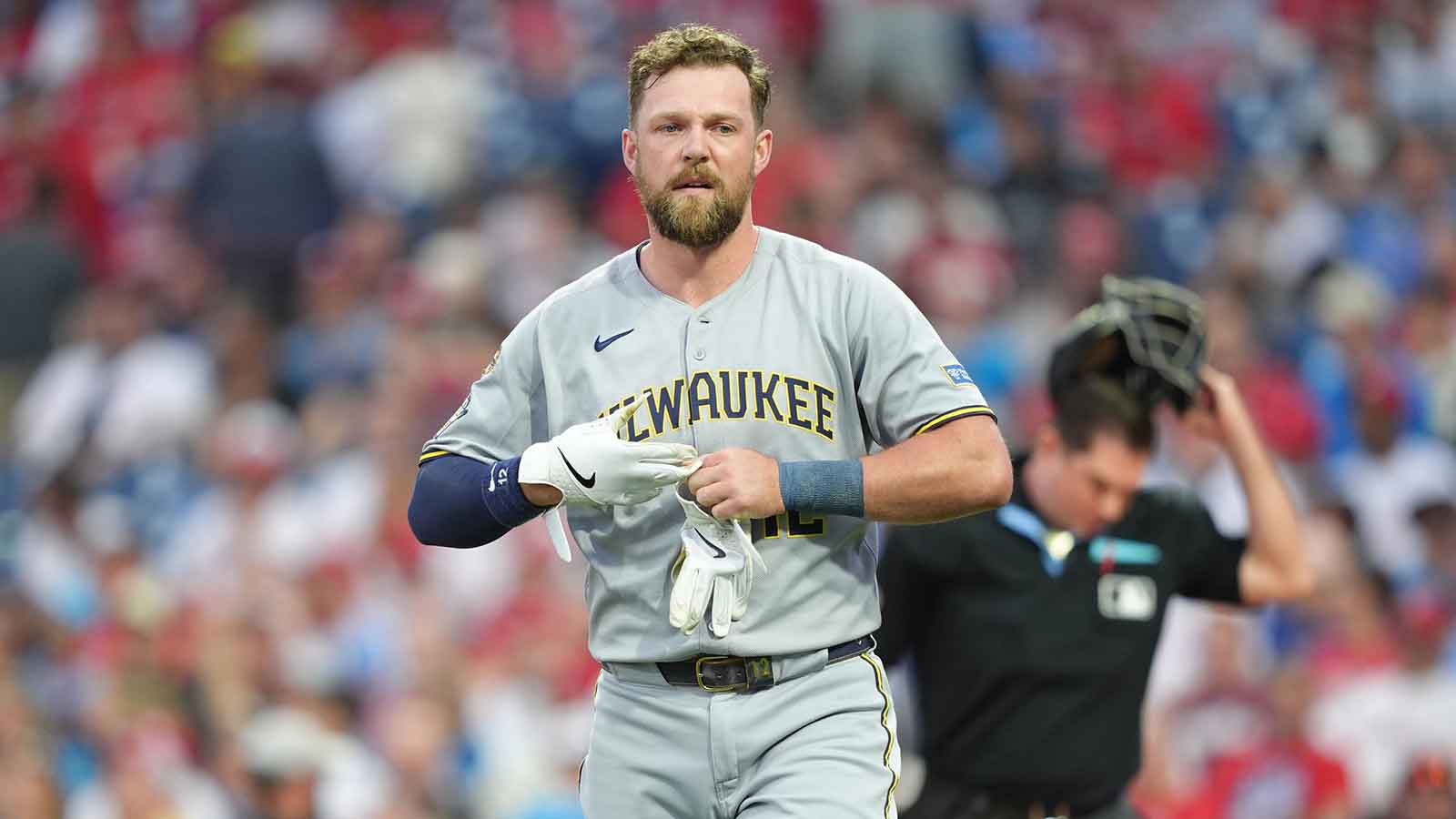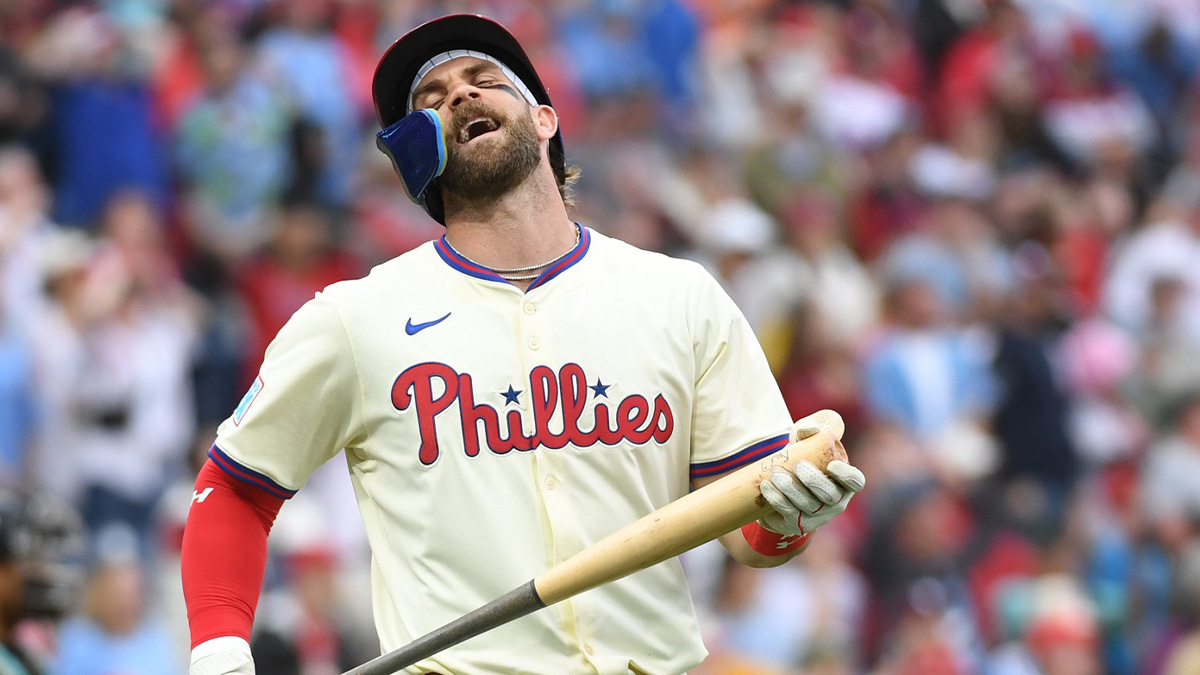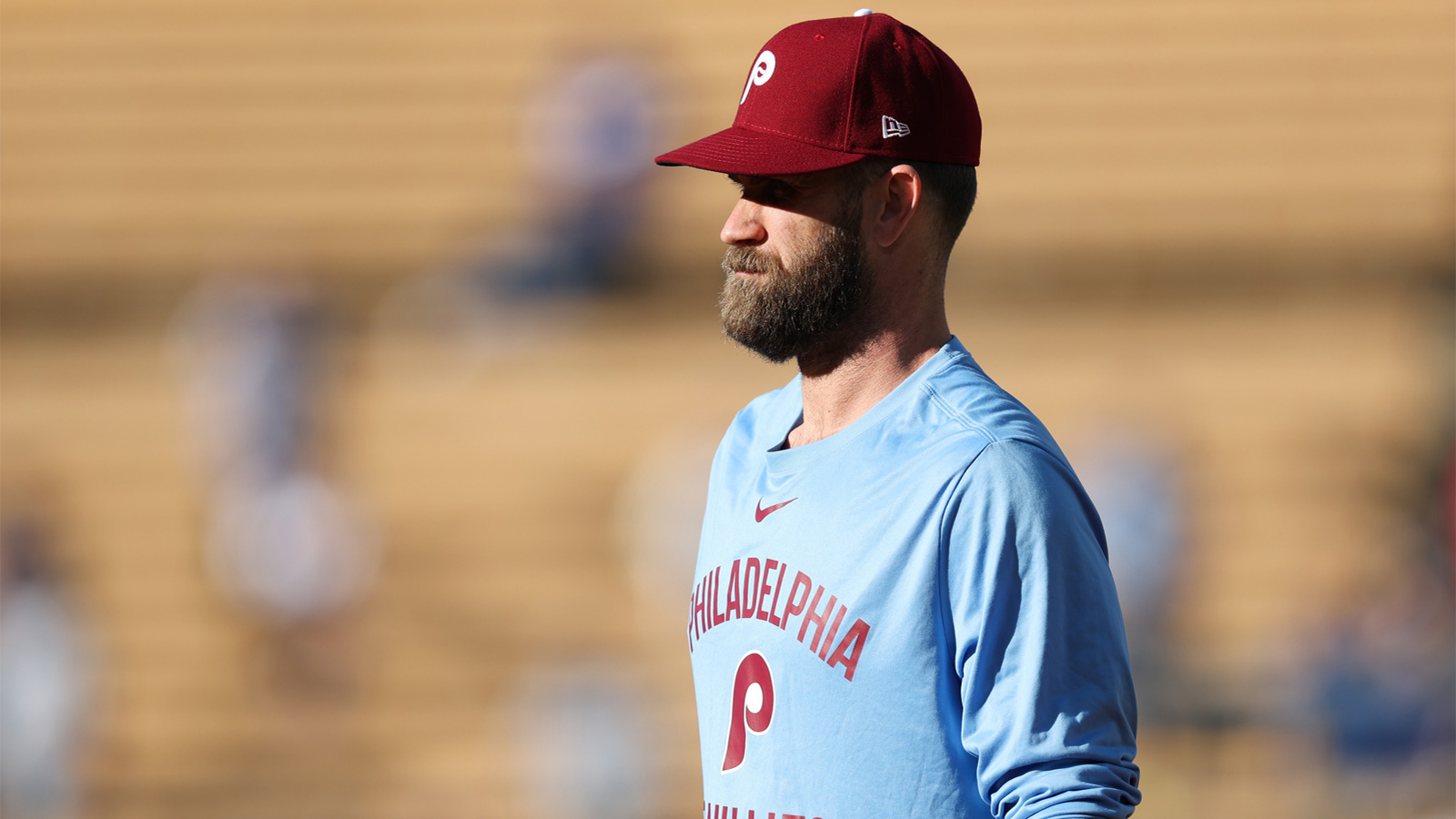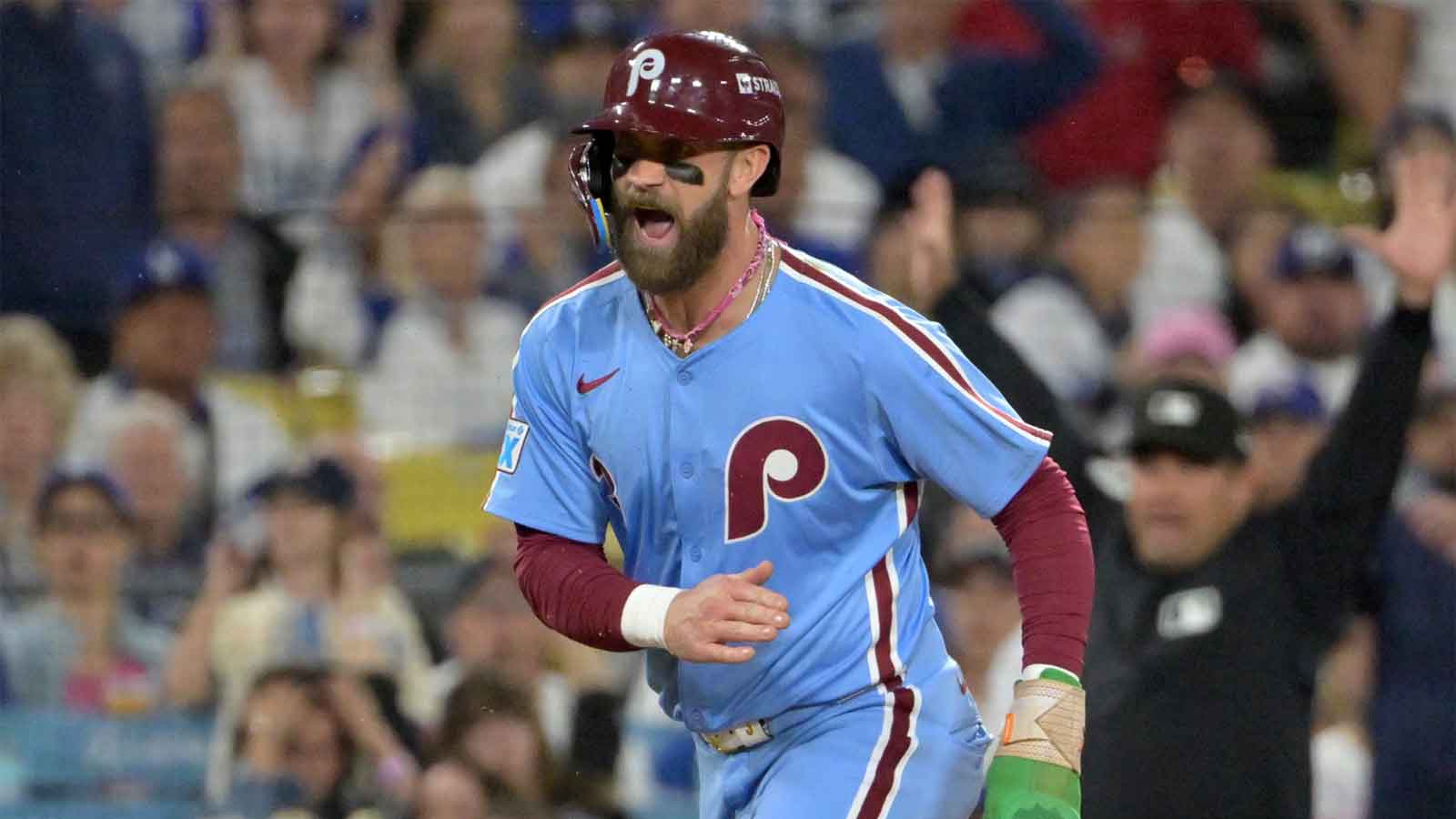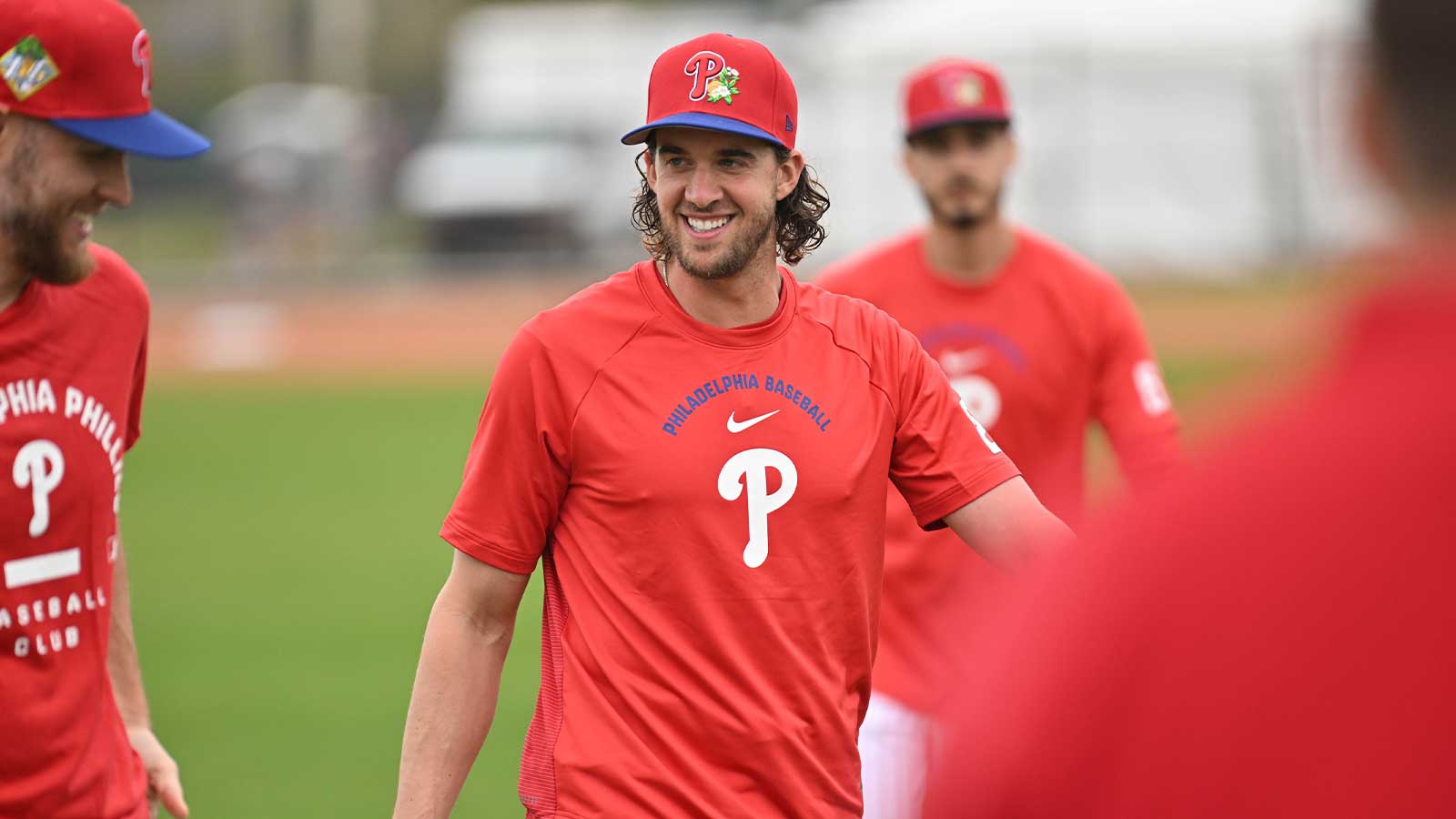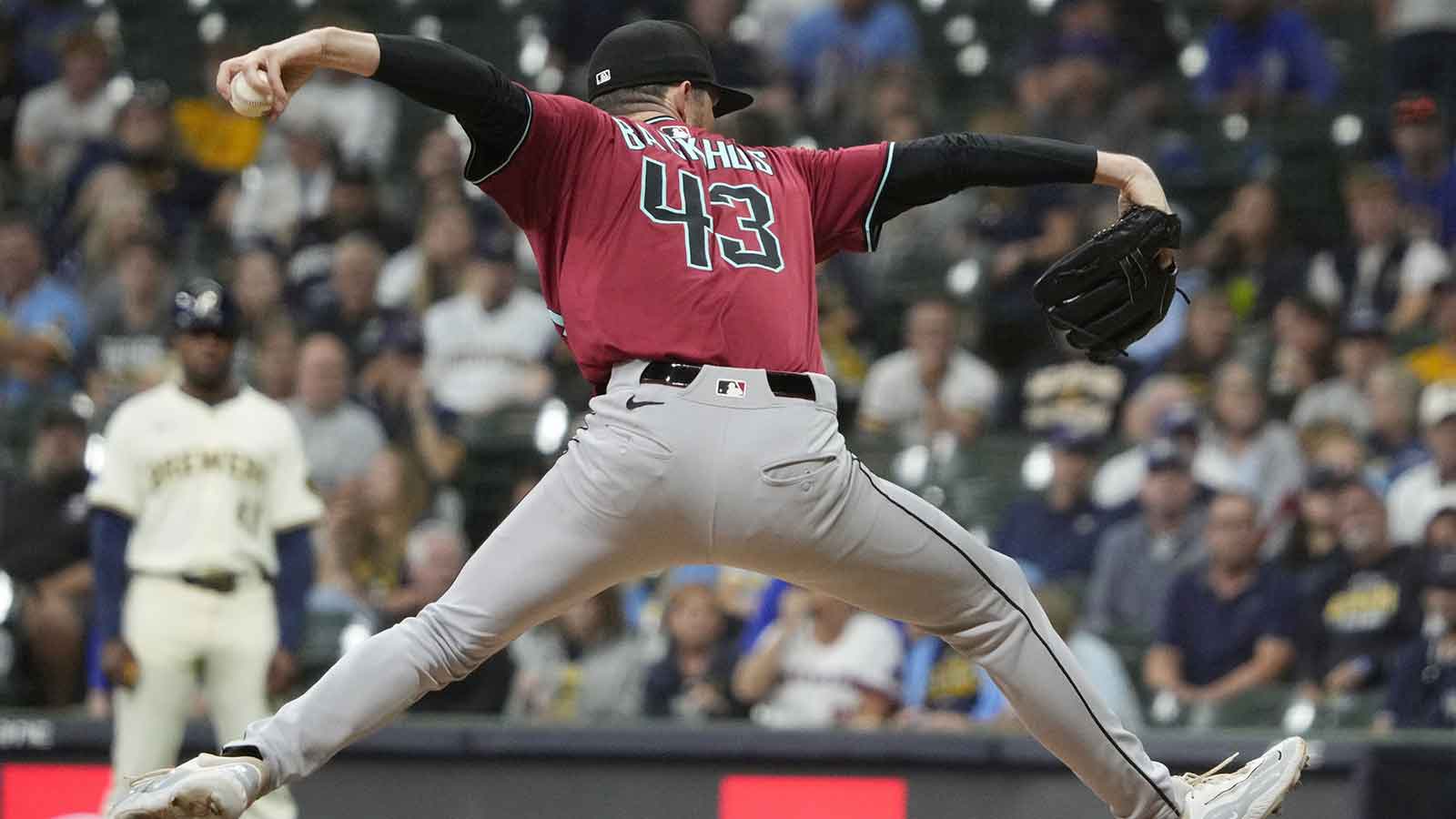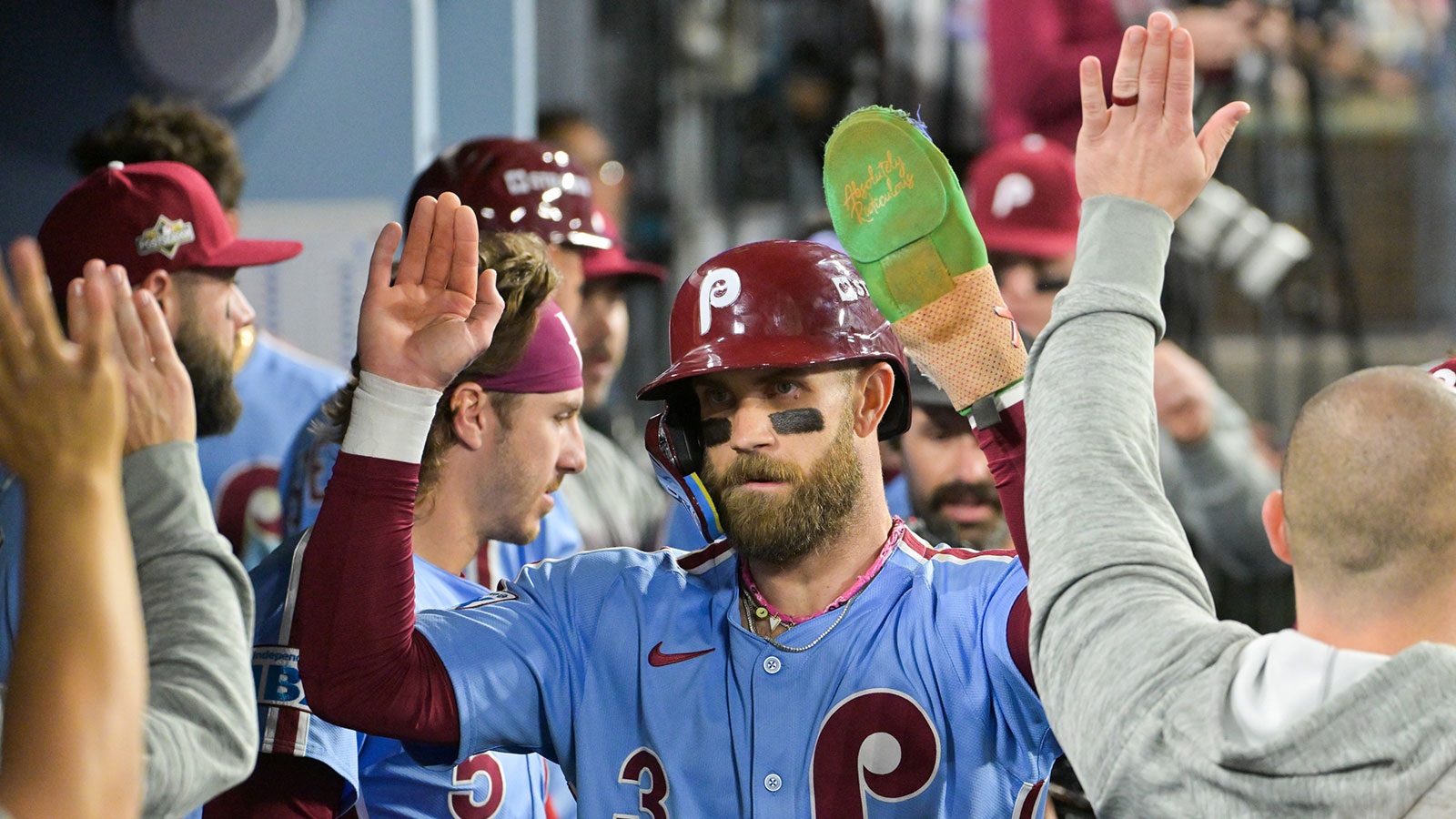By just about any standard, the Philadelphia Phillies have a better roster this year than they did last year when they made the World Series. After coming up just short against the Houston Astros, the Phillies returned just about every key contributor and then added superstar shortstop Trea Turner on a record setting 11 year, $300 million contract in free agency. So they're a powerhouse right? No! With a 25-27 record through the first third of the season, the Phillies have been one of the most disappointing teams in Major League Baseball this season and putative stars like Trea Turner and Kyle Schwarber have been a major reason why. Here are the three players that Phillies' fans are already sick of.
Trea Turner
Dating back to his rookie season in 2016, Turner has been one of the best players in baseball. He offers an unparalleled combination of power, speed and versatility. Unlike most speedsters, he hits for power and average, maintaining an .833 OPS and a 120 OPS+ over the course of his career and winning the batting title in 2021. Unlike most sluggers, he's a terror on the base paths, swiping at least 25 stolen bases in every full season he's played. To wit, he capably plays three premium defensive positions, able to toggle between shortstop, second base and center field. In total, this rare cocktail of skills has made him worth about five Wins Above Replacement per 162 games.
His arrival was supposed to represent the Phillies' roster ascending to a new level this season. Unfortunately, he's stunk. His .248 batting average and .683 OPS are both the worst of his career by a large margin; his five homers and seven stolen bases put him on pace for his least prolific season at the dish and on the bases. Naturally, Phillies fans are letting their displeasure be heard; on May 24th, the Philly faithful—and Donna Turner, his mom—lustily booed Turner, who at the time was mired in a 2-20 slump. After being booed, Turner responded by slugging a game-tying home run in the 9th inning, so maybe the ire of the fans is just what Turner needs to turn it around.
Kyle Schwarber
Kyle Schwarber's goodness has always been based on a fragile calculus. He can't field worth a damn (he's a permanent designated hitter for a reason), doesn't run fast (he's stolen a grand total of 22 bases in nine years) and doesn't hit for average (his batting average has crept above .250 in only one season). Although Schwarber doesn't produce in a way that would be legible or valuable for the vast majority of baseball history, he's very much a product of his era, distilling Three True Outcome baseball to its purest form. Last season, Schwarber hit a piddling .216 and struck out a league-leading 200 times, but still received down ballot MVP votes because he socked 46 home runs and drew 86 walks.
Whereas he once hit with just enough power and patience to compensate for his myriad other faults, the math through the first 52 games has subtly shifted in disastrous ways for Schwarber. His .166 batting average is unacceptably bad and his 12 home runs are solid but unremarkable. Between his unproductive hitting and lack of positional value, Schwarber has produced -0.8 Wins Above Replacement, the 11th-worst mark in all of baseball.
Bailey Falter
I mean, his last name is Falter. While Turner and Schwarber are both bona fide stars, Falter is a former fifth round draft pick who earned a spot in the starting rotation after a solid rookie season. Now in his first full season in the majors, Falter, like the rest of the Phillies' rotation and roster at large, has been a mess. To be sure, other Phillies' starters like co-aces Zack Wheeler and Aaron Nola have been disappointing, Falter has achieved an unmatched level of badness.
He's started seven games and lost all seven of them. In 50 innings, he's given up a whopping 30 runs (23 of them earned). His advanced stats are hardly any better. His whiff rate (the percentage of swings and misses that he elicits) is in the fourth percentile; his expected batting average against is in the 17th percentile and his expected slugging is in the 23rd. In essence, pretty much every time a batter swings at a pitch, they clobber it.
As a rookie, Falter went 6-4 with a 3.86 earned run average, but his strong numbers belied much shakier advanced stats. His FIP (an ERA substitute that measures a pitcher's success independent of the fielding behind them) in 2022: 4.65. His FIP this year: 4.75. In this sense, Falter is, uh, faltering this year simply because this is the level of pitcher he truly is. With Falter recently having been demoted to the minors, it's becoming increasingly clear that this year isn't the fluke; last year was.



